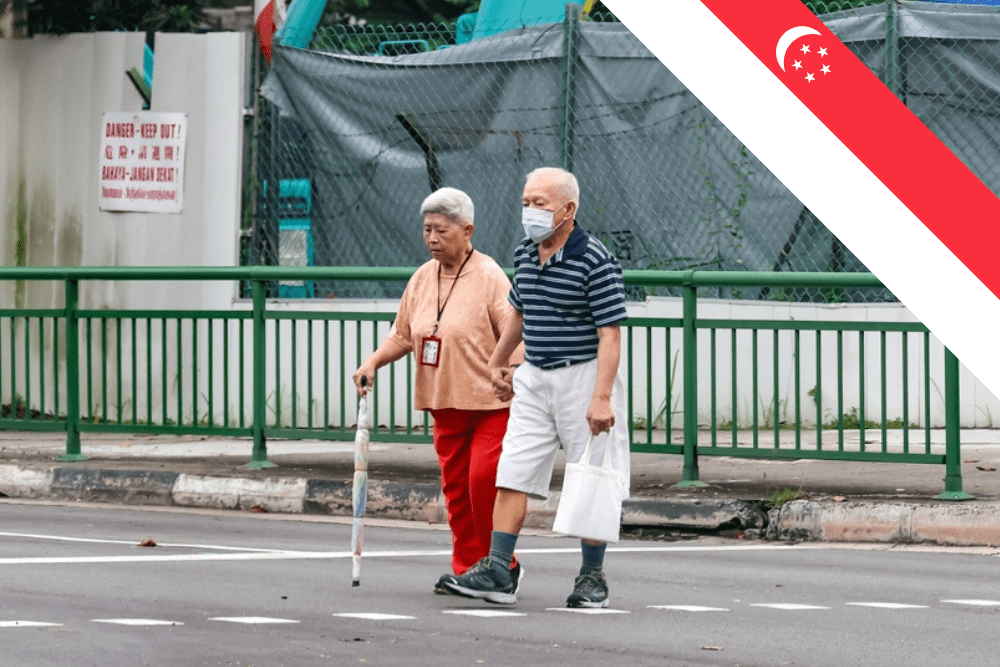Dementia rates among Singapore’s elderly have dropped to 1 in 11, driven by higher education and better stroke prevention, says IMH.
The Singapore Institute of Mental Health (IMH) has reported a significant decrease in the prevalence of dementia in Singapore. According to the WiSE study, dementia now affects 8.8% of older adults, down from 10% in 2013. This shift indicates a positive trend, with fewer elderly individuals experiencing dementia compared to a decade ago.
“These efforts may have helped to bend the curve,” Professor Chong Siow Ann, Senior Consultant at IMH, remarked, referring to government initiatives that have promoted active ageing and early detection of conditions contributing to cognitive decline.
 Adjunct Professor Chong Siow Ann, Senior Consultant Psychiatrist, Institute of Mental Health and NUS Saw Swee Hock School of Public Health (Image: NUS)
Adjunct Professor Chong Siow Ann, Senior Consultant Psychiatrist, Institute of Mental Health and NUS Saw Swee Hock School of Public Health (Image: NUS)
How the WiSE Study Tracks Dementia Trends in Singapore
The Well-Being of the Singapore Elderly (WiSE) study by the IMH monitors mental health trends among older adults in Singapore. Launched in 2013, the study examines the prevalence of dementia in Singapore, along with conditions like depression. The 2023 study involved 2,010 participants aged 60 and above, offering a comparison with data from a decade ago.
Funded by the Ministry of Health (MOH), the WiSE study also examines the treatment gap, referring to the percentage of individuals with dementia who remain undiagnosed or untreated. The study provides insights into how education, employment, and healthcare improvements have affected dementia rates in Singapore.
The study also highlighted a substantial reduction in this treatment gap. In 2013, 70.6% of dementia cases were undiagnosed and untreated. By 2023, this figure had improved to 51.5%. This improvement reflects the success of enhanced diagnostic efforts and greater public awareness, leading to more older adults receiving the care they need.
Factors Behind the Decline in Dementia in Singapore
The WiSE study identified several factors contributing to the decline in dementia rates among older adults in Singapore. One significant factor is the increase in employment and education levels among this group.
Dr. Mythily Subramaniam, Assistant Chairman of IMH’s Medical Board for Research, noted, “We observed that more older adults in Singapore were employed and had higher education in 2023 compared with 2013.”
Employment and education are linked to better cognitive health, as they promote mental activity and social engagement, both of which help reduce the risk of dementia. Another key factor is the decline in stroke prevalence, a known risk factor for dementia.
Dr. Subramaniam also highlighted that “the prevalence of stroke, which is a risk factor for dementia, has decreased from 2013 to 2023.” This decrease likely reflects the impact of improved stroke prevention and rehabilitation measures, which have contributed to lower dementia rates.
Impact on Caregivers of Dementia Patients in Singapore
While the decline in dementia rates is promising, the WiSE study also highlights challenges faced by caregivers in Singapore. Dementia significantly contributes to disability and care needs among older adults. As the population ages, the number of individuals requiring care continues to grow. According to the study, 88% of older adults with dementia required some form of care, with 62.3% needing care “most of the time.” This contrasts sharply with the 5.1% of non-dementia patients who required constant care.
The burden on caregivers extends beyond physical care. The study found that 37% of caregivers for dementia patients experienced a high level of care burden, compared to just 18.2% of those caring for non-dementia patients.
Dr. Ng Li Ling noted the progress in care services, stating, “This 19.1% reduction in the treatment gap of dementia since the last WiSE study is extremely heartening… These efforts have made a significant difference in reducing the treatment gap.”
Sustaining the Momentum in Dementia Care
The decline in dementia prevalence among older adults in Singapore is an encouraging sign that sustained efforts in public health, education, and early intervention are making a tangible impact. However, the increase in the absolute number of dementia cases reminds us that challenges lie ahead. As Singapore’s population continues to age, the strain on healthcare systems and the burden on caregivers will only intensify.
This moment presents an opportunity to reflect on what has been achieved and what more can be done. The success of initiatives aimed at early detection and the promotion of cognitive health must not lead to complacency. Instead, it should fuel a renewed commitment to expanding these programmes and ensuring they reach every segment of the population.
Professor Chong emphasised the importance of continued efforts, stating, “It is important that we do not ease up, but instead continue to strengthen our efforts to reduce the impact of dementia.”
The focus must shift towards creating a more dementia-friendly society, where support for both patients and caregivers is seamlessly integrated into the community. Progress is not just about reducing dementia rates but improving the quality of life for those affected. As Singapore moves forward, lessons from the WiSE study should guide efforts to help everyone age with dignity and care.

